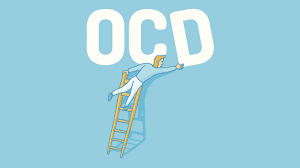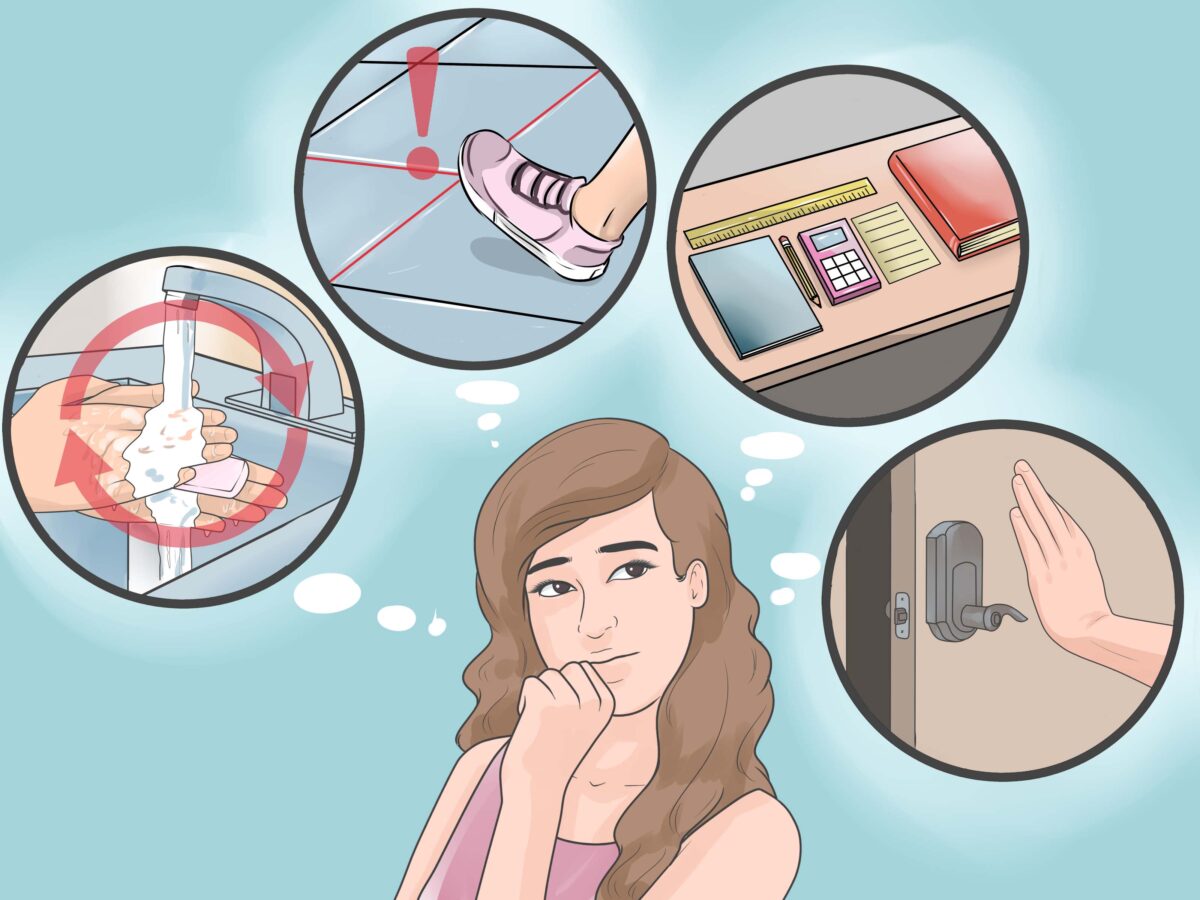What is obsessive-compulsive disorder? How does it affect people who have it? These are questions that many people ask themselves, but the answers are not always easy to find. In this article, we will discuss what OCD is and how it affects those who have the condition. We will also provide tips on how you can live a fulfilling life while living with Obsessive-Compulsive Disorder.
Contents
- 1 What is obsessive-compulsive disorder?
- 1.1 How does it affect those who have the condition?
- 1.2 Symptoms Of Obsessive-Compulsive Disorder
- 1.3 Causes Of Obsessive-Compulsive Disorder
- 1.4 Obsessive-Compulsive Disorder In Children
- 1.5 Obsessive-Compulsive Disorder In Elders
- 1.6 Negative Impact Of Obsessive-Compulsive Disorder
- 1.7 Diagnosis Of Obsessive-Compulsive Disorder
- 1.8 Therapy Options For Obsessive-Compulsive Disorder
- 1.9 Tips To Deal With Obsessive-Compulsive Disorder
- 2 Conclusion
What is obsessive-compulsive disorder?

Obsessive-compulsive disorder is a mental health condition that causes people to have repetitive thoughts and behaviors. People with OCD may feel like they can’t control their thoughts or behaviors, which can cause significant distress and interfere with daily life.
How does it affect those who have the condition?
When people think of OCD, they may envision a person with obsessive thoughts about germs or cleanliness. While this is one example of what someone’s obsessions can be like, there are also many other types. People with OCD might obsess over:
- Fear of harm coming to themselves and/or others (i.e., constantly checking locks)
- Contamination (i.e., handwashing excessively)
- Unwanted sexual images in their head that make them feel guilty or shameful (i.e., unwanted thoughts about hurting children)
People with OCD often try to use compulsions as a way to reduce anxiety surrounding these ideas and behaviors; however, compulsions can also cause more anxiety. For example, someone with OCD may feel like they need to check that the oven is off several times because of their fear of leaving it on and causing a fire; however, each time they check this compulsion makes them feel worse because part of them knows that checking just once would have been enough.
Symptoms Of Obsessive-Compulsive Disorder
While it’s normal to have obsessive thoughts and compulsive behaviors occasionally, these symptoms aren’t healthy when they cause a significant amount of stress or anxiety. This is especially true if you feel like you can’t control your obsessions and compulsions, even though the behavior isn’t productive in any way.

Obsessions Symptoms
- Intrusive thoughts that are unwanted, repetitive, and disturbing
- Images or impulses that are upsetting or cause anxiety
- Fear of harming oneself or others
Compulsive Thoughts Symptoms
- Thoughts that need to be repeated over and over again
- Behaviors that are done in response to an obsession (i.e., checking)
- Feelings of guilt, shame, doubt, or fear surrounding the compulsion
Obsessive-compulsive disorder can affect people of any age, race, gender identity, and sexual orientation. It’s important to remember that OCD is a real condition with real symptoms; it is not something made up by the person who has it.
Causes Of Obsessive-Compulsive Disorder
No one knows exactly what causes obsessive-compulsive disorder, but many factors can make a person more likely to develop it. These include:
- Having a family member who has OCD or another mental health condition (i.e., depression)
- Experiencing traumatic events in childhood such as abuse and neglect
- Stressful life events like relationship problems, moving homes/schools, etc.
Obsessive-Compulsive Disorder In Children

While up to one in 50 children may have OCD, this is often overlooked. This can be the result of many factors including:
- Parents do not understand what their child’s symptoms are or how they should respond if a child has obsessive-compulsive disorder
- Schools being unprepared to handle students who have mental health conditions like OCD
- OCD is a difficult disorder for adults, but children can also get it. Doctors don’t know if they have OCD because the disorder only affects adults. You should be aware that someone who looks perfect could still live with significant distress caused by OCD.
People with OCD need help. They might need you to listen to them and not make it worse. You can also tell them about your day.
OCD can be very isolating. It is important to try and create a support system with people like family, friends, therapists, or any other type of group that they like. Finding what works for each person takes time and patience.
There are many different ways that OCD affects daily life. How does it affect those who have the condition? When people think of OCD, they may envision a person with obsessive thoughts about germs or cleanliness. While this is one example of what someone’s obsessions can be like, there are also many other types. People with OCD might obsess over:
- Harm: fear of causing harm to oneself or others
- Order and cleanliness: a need for things to be in just the right order, on just the right spot, etc.
- Unwanted sexual thoughts (especially related to children)
- Religion and harming those who are different from you (i.e., racism)
Obsessive-Compulsive Disorder In Elders

Obsessive-compulsive disorder can affect people of any age, race, gender identity, and sexual orientation. It’s important to remember that OCD is a real condition with real symptoms; it is not something made up by the person who has it.
Negative Impact Of Obsessive-Compulsive Disorder
OCD can be a severe mental illness that impacts daily life. It may cause extreme anxiety, depression, and interfere with social activities. Someone living with OCD might experience:
- Extreme discomfort when having to complete tasks in an “unusual” way or avoid certain objects due to their obsessions
- Depression or even thoughts of suicide because they feel trapped by the disorder and it overwhelms them regularly
- A significant amount of missed work/school days if they don’t have access to flexible accommodations at their job (i.e., reduced hours)
- Social isolation from friends and loved ones who do not understand what they’re going through; some people may also stop seeing family members, which only worsens the situation for someone with OCD
Diagnosis Of Obsessive-Compulsive Disorder
It is important to get diagnosed by a medical professional if you think that you might have obsessive-compulsive disorder. The first step would be to speak with your primary care doctor or OB/GYN about the symptoms and how they impact your life. They will let you know what kind of treatment options are available for someone living with OCD.
Many different treatments can help improve the quality of life in people who struggle with OCD, but it’s important to remember that everyone has individual needs when it comes to their mental health treatment plan. For some people, medication may only be part of the solution; others find relief from both therapy and medications together. A therapist can provide individuals coping skills so they can better understand themselves and their condition, which can help them challenge the thoughts that trigger OCD.
Therapy Options For Obsessive-Compulsive Disorder

There are also different kinds of therapy available for someone with obsessive-compulsive disorder:
- Cognitive Behavioral Therapy (CBT): CBT is a type of treatment that helps people to become aware of what causes their anxiety and teaches them how to cope with stress. CBT also focuses on how we think about things and our thought patterns. It can help us change the way we think so that we do not get anxious.
- Exposure Response Prevention (ERP): An exposure-response prevention therapist will work closely with you to help you gradually face your fears. He or she will teach you how to relax so that the fear doesn’t bother you. This type of therapy can take a long time, but it’s worth it for the result.
- Psychodynamic Therapy: This type of therapy focuses on your past and how it impacts the way you think, feel, behave, etc. It helps individuals recognize their beliefs about themselves that developed during childhood so they can begin to move beyond them as adults; there is also an emphasis on understanding significant relationships throughout life (i.e., parents/caretakers).
- Medication: There are many medications for people who have obsessive-compulsive disorder. You can work with a mental health professional to find the best one.
Some people with obsessive-compulsive disorder may talk to a therapist who specializes in OCD or anxiety disorders. They will give you different types of treatments for your condition. They will work closely with clients to create an effective plan based on what each needs at present. If someone has more than one condition, they may need to work with a doctor that is good at treating that problem. People who have depression or bipolar disorder might need to see a doctor who specializes in these problems.
Tips To Deal With Obsessive-Compulsive Disorder
- One way to deal with OCD is by practicing mindfulness. This can help you live in the moment instead of worrying about what might happen. This will allow you to think about your feelings when someone dies. It is also a good way to keep from feeling bad when something goes wrong.
- People who have OCD can use cognitive restructuring to help them. They ask themselves questions about their negative thoughts and do not answer them. You can do this at home by writing down any irrational beliefs that lead you into a downward spiral. Then try to find other beliefs that would disagree with these thoughts, such as what other people say when they know how you feel.
There are many coping skills that people can utilize to help them overcome their obsessive-compulsive disorder; it’s important for individuals struggling with OCD to find what works best for them so they can manage their symptoms more effectively and live a fulfilled life.
Conclusion
If you are looking for affordable Online Counseling MantraCare can help: Book a trial therapy session



